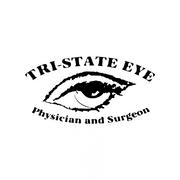
Cataracts is a condition where there is a cloudiness in the natural lens of the eye. This age-related disease develops slowly, between the front and back areas of the eye. According to the National Eye Institute, cataracts affect an estimated 24.4 million Americans aged 40 or older. In fact, cataract surgery is one of the most commonly performed operations in the U.S. Here is a guide for the most frequently asked questions about this condition.
Commonly Asked Questions About Cataracts
What are the symptoms?
Symptoms vary from patient to patient and with few noticing many changes in the beginning stages. With this disease, the symptoms develop slowly and subtly, increasing in severity over time. Some of the most common symptoms include cloudy or blurred vision, sensitivity to lights or a halo around light sources, poor night vision, double or distorted vision, reduced visual color pigmentation and increasing nearsightedness.
What are the causes of cataracts?
While experts don't know for sure, it is believed that there are several components linked to the development of this disease. More research is needed to better understand the correlation, especially with medication. However, experts found that smoking, diabetes, excessive sun exposure, steroid use, certain diuretic use, and certain major tranquilizers all have associations with the development of cataracts.

Who is at risk?
Adults between the ages of 40 and 50 are at a higher risk, as this is when changes in the lenses of our eyes begin to affect our sight. However, the average age for developing cataracts is 60. People who live at high altitudes or have excessive sun exposure are also at a higher risk. This is because UV is blocked by the atmosphere. At a higher altitude, the exposure to ultraviolet rays is much higher.
How are cataracts treated?
Treatment for cataracts is not a one-size-fits-all approach. Your doctor will decide the best approach by factoring in your age, health, medical history, the severity of your condition, and your ability to tolerate certain medications. If your cataracts have reached the point where they need to be removed, your doctor will perform cataract surgery.
If you think you may need cataract surgery, reach out to Tri-State Eye. Their expert team of eye doctors, eye surgeons, and retina specialists are dedicated to helping you see the most clearly and crisply that you possibly can. Using cutting-edge technology and optimal comprehensive care, these specialists are able to pinpoint the root of the problem and determine an effective and safe course of treatment. To learn more about how to get to their two locations in Middletown, NY, and Milford, PA, visit the website. For questions or to schedule an appointment, call (845) 703-2020 for Middletown and (570) 296-9696 for Milford.
About the Business
Have a question? Ask the experts!
Send your question

